Why Is Beef Production Needs to Stop Animals Cruelty
At no other time in history have this many animals died nor suffered so much throughout their lives.
According to the United Nations, the number of industrial livestock sent to slaughter each year is equivalent to eight times the human population on planet Earth. At no other time in history have so many animals died or suffered so much throughout their lives.
Factory farming is the main cause of animal suffering and abuse. These silent victims have been converted into machines that generate meat, milk, and eggs. These animals are sentient beings with a desire to live, but we take that life away.
These images show us the reality of an industry that is hidden from us so well. If you ever think about helping animals, there is no better time than now. With every meatless meal, you can help make these images a part of the past.
This way you will do your part to create a better world for all, including the animals.
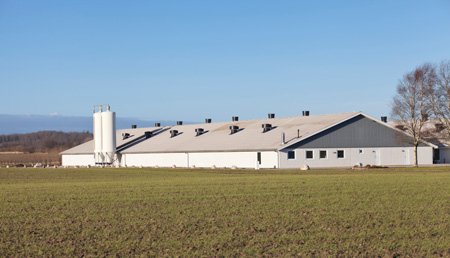
This is a factory farm. These big windowless sheds with artificial light are the living spaces of the innocent animals that end up packaged at the supermarket. Without even realizing it, these sinister places are all around us.
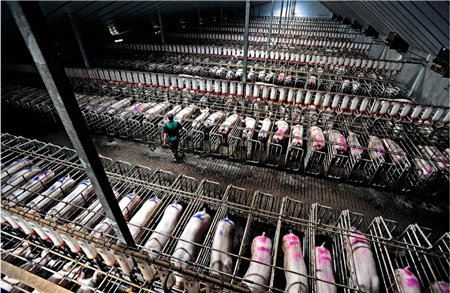
The interior looks like something out of a nightmare.Animals are turned into machines that produce meat at the cost of unimaginable suffering from the day they are born. In this picture we see pigs in cages so small they can't even turn around. This is considered standard and acceptable to the industry.
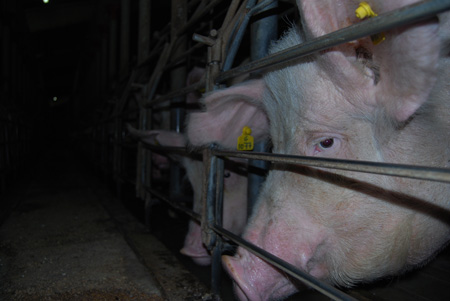
The life of pigs is one of confinement and abuse.These intelligent and sensitive animals suffer greatly. Their eyes often speak of sadness and frustration that stems from a life without sun, fresh air, friends, and natural stimuli.
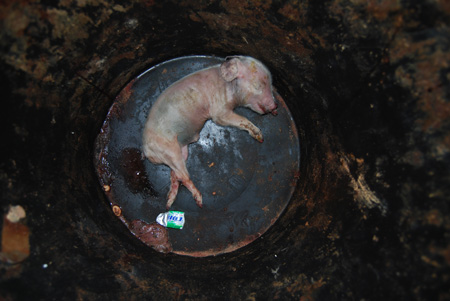
Those born weakest often diewithout veterinary care. Their short, anonymous lives often lead them to the trash bin. They never get to experience even the slightest gesture of compassion.
Like products of an assembly line, chickens used for meat are stacked in boxes and sent to fattening farms, where they live for about 42 days, they are sent to the slaughterhouse.
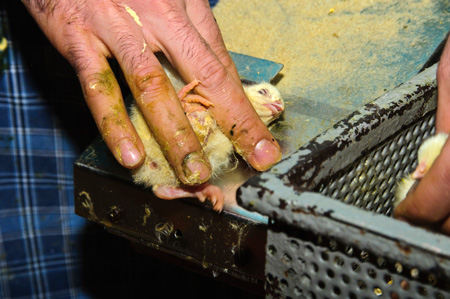
They will never get to meet their mothers. They will never feel their protection and care, only the harshness of humans of the food industry. In this picture, a chick is vaccinated before being sent to the fattening farm. Every year, millions like him go through the same torment.
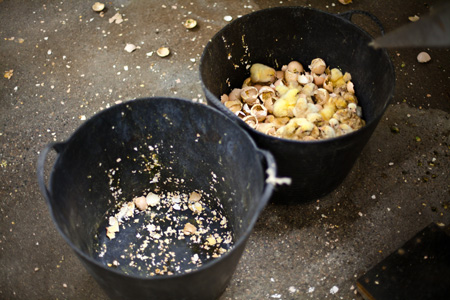
With little hope of surviving in the first place, weak chicks are thrown directly into the trash bins and are either suffocated or crushed with clubs. These animals do not receive any individual veterinary care. Not a single penny is spent on them; the meat industry prefers them dead.
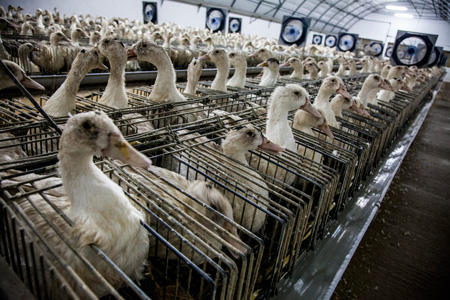
Caged and unable to move, the poor ducks from the foie gras industry experience a living hell from the day they are born. They spend the entirety of their short lives confined. They are fed with a long tube inserted down the esophagus to bring the food directly to the stomach and liver to ensure that it fattens quickly and unnaturally.
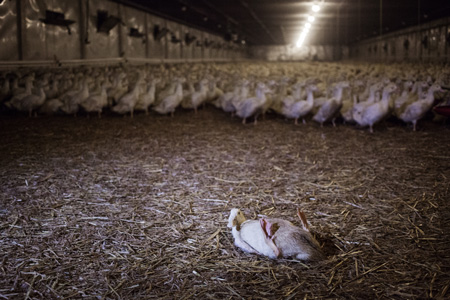
High and low temperatures on farms are common. The extreme conditions in which they live have consequences. Animals are in no condition to withstand such a harsh environment. In this image, a duck from the meat industry has collapsed and can no longer stand.
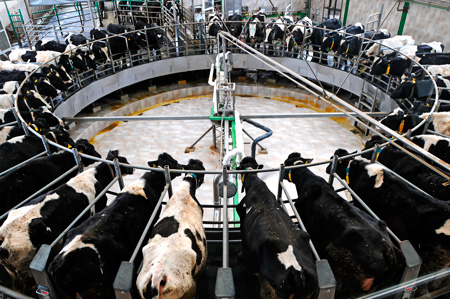
The dairy industry is responsible for one of the cruelest production cycles that exist: the mother cows are artificially inseminated, are separated from their calves at birth, and the milk that was intended for their young is stolen away. When they stop producing milk, they are inseminated again. And so the cycle continues. Their male children will be killed shortly after birth for veal, and the females will become the next generation of dairy cows that go through this cruel process.
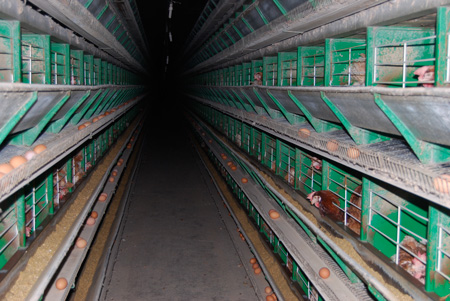
The egg industry keeps tens of thousands of hens (sometimes hundreds of thousands) in giant farms. Up to six of them live in small cages with little to no room to move. They cannot even spread their wings. The egg-laying rate is so high that after a year and a half these hens are exhausted and sent to the slaughterhouse.
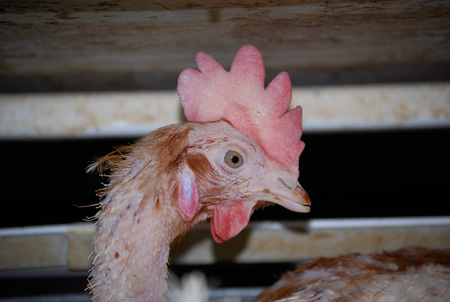
The extreme conditions in cages stress them to the point that they peck each other in frustration. Due to this, and in addition to their weakness, they lose their feathers. To avoid greater complications, the ends of their sensitive beaks are cut off shortly after birth. This process is incredibly painful for them.
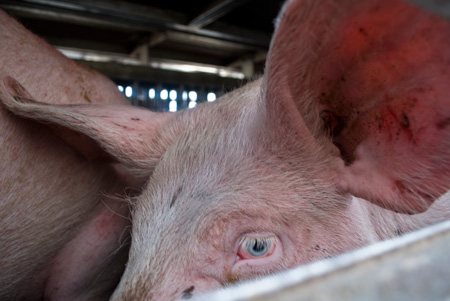
For many animals, the only time they see and feel the light and warmth of the sun will be during the trip to the slaughterhouse. Transport conditions are incredibly inhumane: animals are crammed into large trucks, sometimes traveling long distances, without food or water. These images do not reveal a compassionate world.
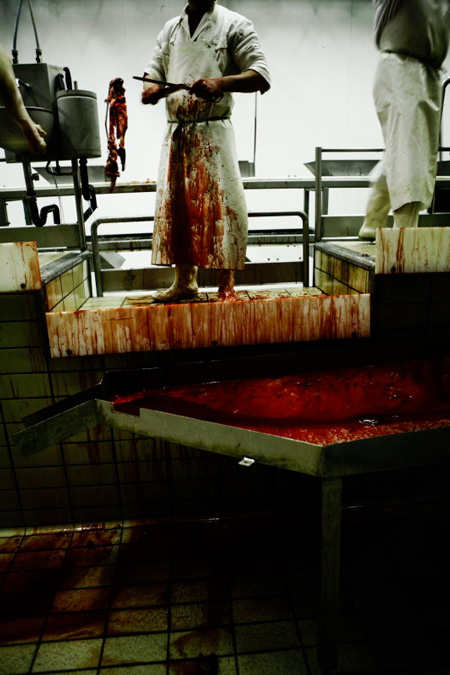
Photography: francescoscipioni
All farm animals end up in the same place: the slaughterhouse. If their lives were miserable, their deaths are a nightmare. Stunned, hung upside down, decapitated…all after witnessing others who have gone before them. No animal deserves such a cruel life or death. When will we learn to show solidarity? When will we learn to respect our fellow planet companions?
Sign our petition to put an end to factory farming. Forever.
Source: https://animalequality.org/news/why-factory-farming-is-the-largest-cause-of-animal-abuse-in-history/
0 Response to "Why Is Beef Production Needs to Stop Animals Cruelty"
Post a Comment